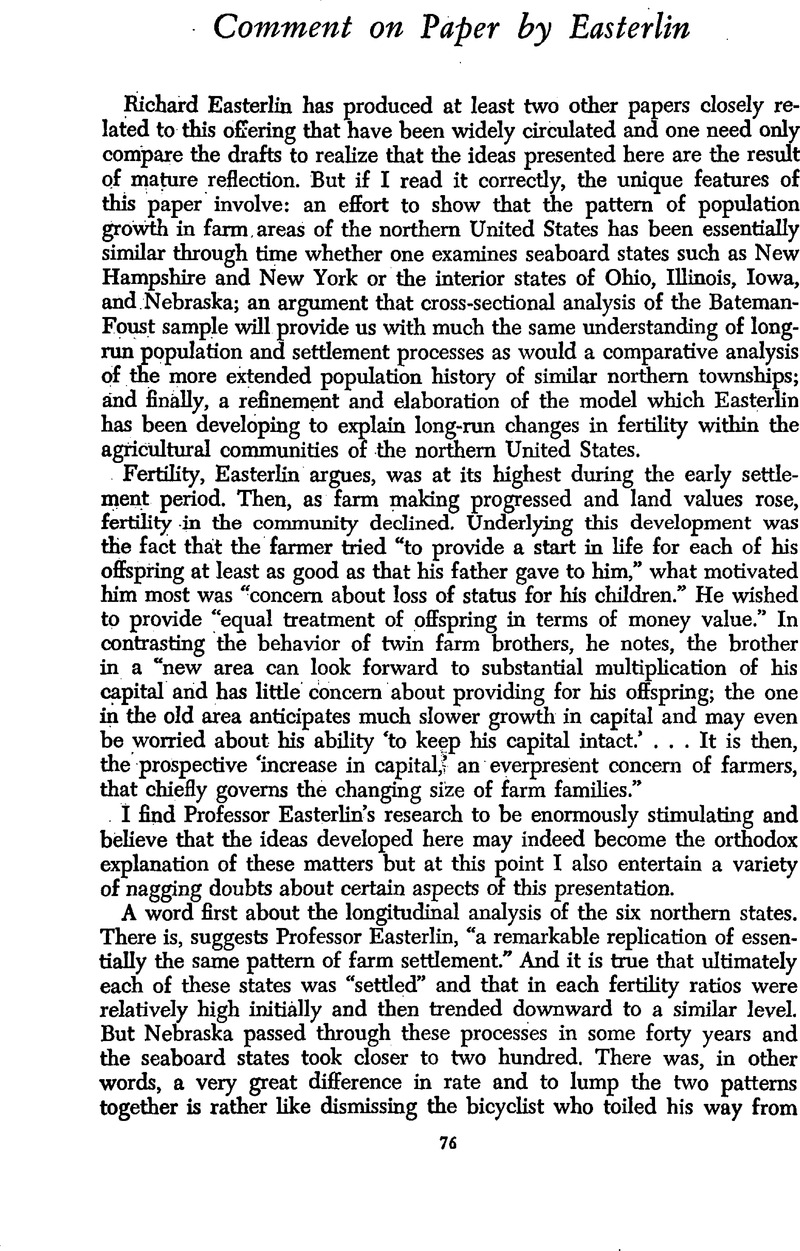Article contents
Comment on Paper by Easterlin
Published online by Cambridge University Press: 11 May 2010
Abstract

- Type
- Papers Presented at the Thirty-Fifth Annual Meeting of the Economic History Association
- Information
- Copyright
- Copyright © The Economic History Association 1976
References
1 The case for the modernization variables is discussed at length by Vinovskis, Maris A. in “Demographic Changes in America from the Revolution to the Civil War: An Analysis of the Socio-Economic Determinants of Fertility Differentials and Trends in Massachusetts from 1765 to 1860” (PhiD. Dissertation, Harvard University, 1975), pp. 113–142.Google Scholar
2 Greven, Philip J. Jr., Four Generations: Population, Land and Family in Colonial Andover, Massachusetts (Ithaca, 1970), p. 254.Google Scholar
3 Danhof, Clarence H., Change in Agriculture: The Northern United States, 1820–1870 (Cambridge, 1969), pp. 101–129.Google Scholar
4 Pressly, Thomas J. and Scofield, William H., Farm Real Estate Values in the United States by Counties, 1850–1959 (Seattle, 1965).Google Scholar
5 Danhof, Change in Agriculture, p. 113.
6 Pressly and Scofield, Farm Real Estate Values, pp. 25, 35.
7 In amplification of this line of interpretation it was suggested from the floor that fanners might have wished to keep farming sons close at hand as insurance against the uncertainties of old age, thereby creating a kind of primitive social security system.
8 Bogue, Allan G., From Prairie to Corn Belt: Farming on the Illinois and Iowa Prairies in the Nineteenth Century (Chicago, 1963), pp. 50–52.Google Scholar
9 Spillman, W. J., “The Agricultural Ladder,” American Economic Review, Supplement, 9 (March, 1919), 170–179.Google Scholar
- 6
- Cited by


